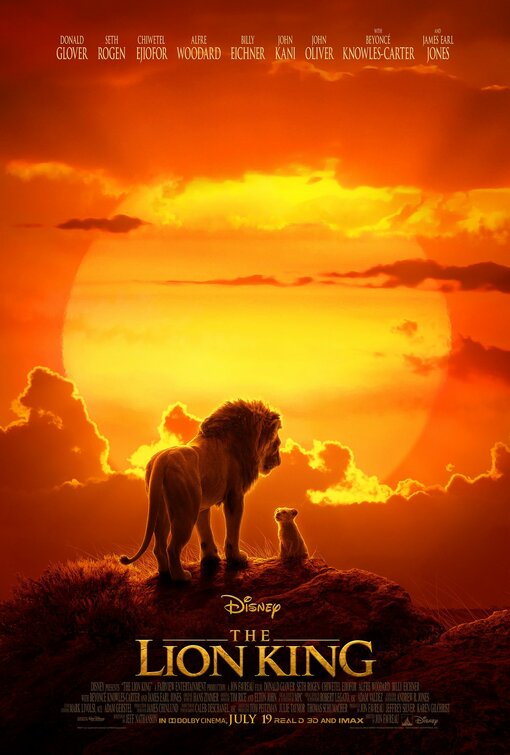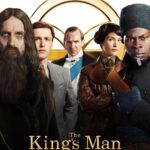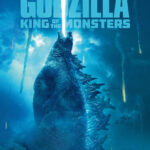Take Your Place In The Circle Of Life
Director
Jon Favreau
Starring
Donald Glover
James Earl Jones
Chiwetel Ejiofor
Beyonce
In the pride lands of Africa, we are introduced to the reigning king, Mufasa [Jones] and his newborn son Simba [JD McCrary]. The wise king tries to instil virtuous to his impetuous child who believes that becoming the new monarch will allow him to say and do as he pleases. Simba’s uncle Scar [Ejiofor] is resents the prospect of serving under a spoilt child when he was the next in line for the throne and schemes to remove both his brother and nephew in one fell swoop with the assistance of a rival gang of hyenas.
It goes without saying that The Lion King is not only one of Disney’s best animated features but also one of their most beloved, sitting in most people’s Top 5s. From the music and artwork to the simple core morals, for many in the West, watching this film for the first time is a formative experience. So before the first frame was shown or the first song sung, there was already a significant level of scepticism and maybe some guarded optimism. Sure, Disney have had some success with their live-action remakes of classics but the most prosperous of these were the ones that either deviated from the story or took features that most audiences wouldn’t have as strong a connection to (excluding Dumbo.. that did both and was still bad). But this movie will always exist in the shadow of and cannot escape its progenitor and without a clear, new vision, this remake feels like little more than an exploitative cash-grab.
Speaking of which, let’s discuss the idea of the remake for a moment. In 1998, acclaimed director Gus Van Sant made a shot-for-shot recreation of the classic horror film Psycho. It was an interesting undertaking but one seemingly without purpose, being both perfectly serviceable and completely forgettable. In this case, it would be unfair to say this is a shot-for-shot remake because it is closer to a reinterpretation of essentially the same script – a few lines of dialogue tweaked, a scene or two added but the bulk of the film depicts the same events from different angles while evoking the same imagery. This is the tightrope walk these films put themselves through, of creating a new or unique interpretation while also staying true to the original. But by failing to do enough differently and wanting to appease everyone we end up with a chimera, a Frankenstein’s monster with familiar components in tact but painfully different from what we know.
Subsequently you would assume producing something so faithfully would construct the perfect environment for triumph but while it has the blue prints for a critically and commercially acclaimed hit, The Lion King runs into two rather unanticipated obstacles: a lack of emotional connection and dull direction borne out of an obsessive quest for photo realism. The latter is much easier to explain so we’ll start there. The camera in Disney animated films, for better or worse is incredibly expressive. It defies logic and weight, moving passionately, acting alongside the vocal work and score as another means to engage, entertain and emote. To maintain the illusion of reality, the camera simply can’t do that, so gone are the dolly zooms, flashy musical numbers, palate and contrast shifts, mystical elements and heightened theatrical lighting, all of which are replaced with weak National Geographic direction and uninspired camera work.
The other powerhouse element sacrificed at the altar of reality is the facial expressions. Lions don’t cry. Hornbills don’t have lips. Warthogs don’t frown. I understand this, we all do. Know what else they don’t do? Talk. But there has got to be a middle ground for the purposes of entertainment where we can suspend disbelief and maintain a semblance of credibility. This is largely why I felt The Jungle Book worked while Mowgli: Legend Of The Jungle did not. With so many blank faces, all the well-known emotional beats fall flat, leaving the heavy lifting to the voice acting. On paper the chosen cast are absolutely perfect. When the list of actors dropped, I nodded approvingly at the eerie precision of their selection but without that symbiotic tie, the performances feels somehow detached from the on-screen animals and that perfect cast becomes wasted.
This will also be an unpopular decision but bringing James Earl Jones back was a mistake. I appreciate that his portrayal of Mufasa is iconic but this is true of all the cast and retaining such a strong reminder of the original hinders anything this film could have been. What’s worse is that, like a live performance of a musical act, these artists age, their abilities shift and they can offer entirely different iterations or renditions. But having played what is effectively a recording of one take over and over so that we, the viewer/listener, find it impossible to imagine the delivery of one line being said any other way, you doom your project by not bringing someone else in to try and bring a fresh perspective. This means that certain scenes lack the same resonance or indeed any presence/urgency. I found this when Simba is being scolded by his father then shifts his tone to one of affection with the line, “that’s ‘cause no one messes with your dad.” It’s a playful scene and delivery that indicates a nice emotional transition while highlighting the bond between father and son; it’s what makes Mufasa’s death all the more painful to experience. For whatever reason, the new delivery comes off a little tired and grounded, robbing us of what should be a cutting moment of foreshadowing. And in truth, that’s my problem with the whole feature.. robbed of something beautiful in place of something functional.
I truly believe this will be one of the least divisive of Disney’s remakes solely because the flaws and merits are so evident; there already seems to be a general consensus that it lacks a soul but for all the head-hanging and hand-wringing, it needs to be said how much this movie accomplishes. This movie is unequivocally visually astounding. The art these animators have brought to life is undeniably breathtaking. My only frustration is that their achievements have been focused on something nobody really asked for and will not receive the industry changing impact they deserve. That accolade will be reserved for the team that brings this level of finesse, proficiency and skill to an original, game-changing story. Regrettably, this is not it but if this feature does anything, it serves as a reminder for audiences of how powerful, effective and seminal the original is.
Release Date:
19th July 2019
The Scene To Look Out For:
I try to imagine if this film would be enjoyable and have the same impact if I had no knowledge of the material it is emulating. So say a child goes to see this movie, having not watched the hand-animated version, would they have as many issues or gripes? I would assume Disney is hoping they would not. But then we have Timon and Pumba singing Hakuna Matata with a few self aware nods that will go straight over this implied audience’s collective heads. Just little callbacks like the meerkat and warthog explaining that people usually cheer when they first hear this phrase and the line “I got downhearted every time that I fa—” is no longer cut-off by Timon in a fourth wall breaking moment but given a new twist. I have no idea why this stuck with me so much but it’s one of the only moments in the film that I’ve been replaying in my head. Take from that what you will.
Notable Characters:
Scar is a truly all-encompassing Disney villain. His motives, performance, song, design, motion, dialogue and queer-coding created something theatrical, self indulgent and decadent. It’s what we think of when we think Disney villain. Ejiofor’s Scar is not. What tears me is that I actually like what this film does with Scar, I like the less (for lack of a better word) sexualised flowing locks and gives Scar a bit of a mangy unkempt loner look. This is not someone to be admired, he’s a murderous, ambitious opportunist. But for all Ejiofor brings to the role, it can’t hold a candle to what Jeremy Irons did.
Highlighted Quote:
“There’s one in every family. My cousin thought he was a woodpecker, slammed his head into trees. Our beaks weren’t built for it. He was concussed regularly”
In A Few Words:
“In a quest for technological advancement The Lion King eschews emotional impact and suffers for it”
Total Score: 2/5
![The Red Right Hand Movie Reviews [Matthew Stogdon]](https://reviews.theredrighthand.co.uk/wp-content/uploads/2021/12/cropped-header1.png)




